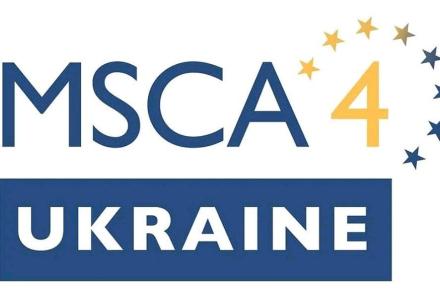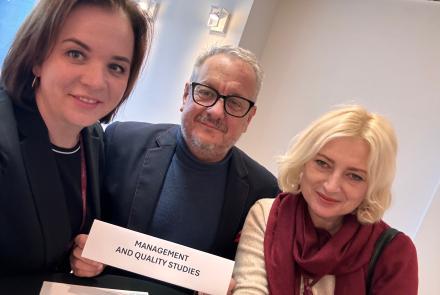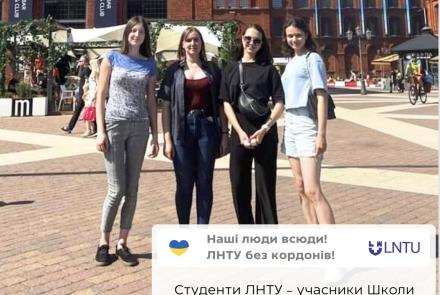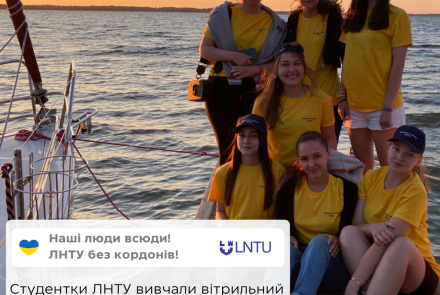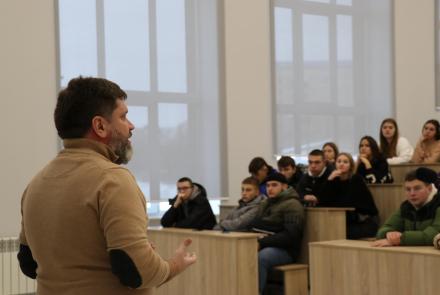
Project No. 43770
The goal of the project is to increase the level of employment of rural youth and students by informing the target audience about employment opportunities, providing targeted employment assistance and forming job search skills and organizing one's self-employment.
According to the Ministry of Labour and Social Policy, Volyn has one of the highest levels of unemployment in Ukraine. Today, about 54.2% of the unemployed population is young people aged 18 to 35. The issue of how to fight youth unemployment is relevant.
Experts believe that employment changes should be made at four levels. First, this is the level of a schoolboy - he needs help to make the right choice regarding his future profession. Secondly, the level of the student. According to Volyn experts, students are passive, and many have overestimated or underestimated self-esteem. Thirdly, the problem of employment should be solved at the level of HEIs, because the theoretical knowledge acquired in higher education institutions does not have the necessary practical aspect. Fourthly, the local administrations have to popularize working professions more, because young people need to know the real state of the labour market.
Solving issues of rural youth employment is provided for by measures of the Territorial Employment Program for 2010-2011. At the state level, the Resolution of the Cabinet of Ministers of Ukraine No. 842 dated September 17, 2008 "On approval of the Concept of the state system of professional orientation of the population" was adopted, with changes introduced by the Resolution of the Cabinet of Ministers of Ukraine No. 1290 dated December 2. 2009, which defines the main provisions of the Concept and consolidates them at the state level.
Regional youth labour centre offices operate to organize employment and develop entrepreneurial initiatives for young people, including those from rural areas, in the Volyn region, in the cities of Lutsk and Kivertsi, and in the urban-type villages of Manevychi and Ivanychi.
In September 2010, the Business Student Centre was opened at the Lutsk National Technical University to implement the Decree of the Cabinet of Ministers of Ukraine "On increasing the employment level of graduates of higher educational institutions". During September-November, together with the Lutsk City Employment Centre, a long-term event was held, which included the organization of a temporary place of professional orientation, where the employees of the employment centre provided career guidance consultations and professional diagnostic examinations of students.
The activity of the Business Student Centre at LNTU is aimed at providing career guidance and employment services to the target audience, namely graduates of educational institutions (LNTU, Liubeshiv Technical College and Kovel Industrial and Economic College), as one of the vulnerable categories that need help in finding the first places of work. The main target audience of the project was rural youth because according to official data, 70% of LNTU students are young people who came to study from rural areas and district centres of the Volyn region. According to research data, it is the youth from the village who are less active and successful in finding a job, mainly due to the presence of certain psychological complexes, lack of preparation for the process of finding a place of employment, a low level of awareness of the possibilities of the labour market, institutions that can be turned to for help in finding a job.
The goal of the project "Increasing the level of employment of rural youth and students" was achieved through the implementation of the following stages:
Stage 1 – the creation of a permanent consultation centre on career guidance and employment.
Activities: organization of a consultant's workplace in building "B" of the Lutsk National Technical University on the first floor near the admissions committee namely the purchase of technology and software, office equipment, stationery, and Internet connection.
The output: one workplace of a career guidance, internship and employment consultant was organized.
Funding from the International Renaissance Foundation: 7,565 UH.
Stage 2 – the development of an information system for the professional orientation of students, focused on the specifics of a technical university, which provides for the possibility of testing both LNTU graduate students and applicants.
Activities: the creation of a functional model of system operation based on existing technical solutions; involvement of professional psychologists in consultation for the creation of a methodology and formation of a system of assessment of psychological and professional characteristics of persons undergoing testing. Writing the program code and its implementation. The system was developed by a group of scientists from the Department of Computer Technologies of Vocational Training.
The output: work on the program for vocational guidance testing was completed.
Funding from the International Renaissance Foundation: 2,000 UH.
Stage 3 – formation of a database of vacant offers and a data bank of graduate students looking for work.
Measures: the systematization of already established contacts with leading enterprises and institutions of the city of Lutsk and the Volyn region, which accept internship graduates in technical and economic specialities; establishment of new contacts with enterprises' HR by addressing emails with information about the need for personnel for the future (2-5 years). Establishing contacts with other Internet networks to expand the base due to available vacancies in other regions of Ukraine and the need for specialities in technical areas. Provision of supporting services by the consultant of the Business Student Centre in filling in resumes and formation of a data bank of unemployed graduates or those employed outside of their major.
The output: a database was formed and information about vacant offers and job vacancies is constantly updated.
Funding from the International Renaissance Foundation: 2,865 UH.
Stage 4 – holding a "Career Fair" for students and graduates of technical and economic specialities with the participation of representatives of local authorities and businesses.
Activities: The event included inviting representatives of employment centres, heads of departments for family, youth and sports affairs, representatives of large enterprises, small and medium-sized businesses with a presentation of experience in organizing their own business, representatives of youth work centres and other public organizations working on employment problems of young people in both cities and villages, representatives of local mass media.
It was informed about the activities of the Business Student Centre and its location.
A series of information and educational posters related to job search was produced: 1. "Successful interview", 2. "Green tourism", 3. "How to start your own business: step by step", 4. "Where to look for a job", 5. "How to look for work".
The circulation of each A5 poster was 200 copies.
The output: approximately 400 graduates were informed about current employment opportunities and relevant areas for starting their businesses.
Funding from the International Renaissance Foundation: 2,250 UH.
Stage 5 – conducting 8 pieces of training for graduate students.
Activities: 4 one-day pieces of training were held in Lutsk based on Lutsk National Technical University; 2 – in the city of Kovel, at the Kovel Industrial and Economic College; 2 - in the village of Liubeshiv, at the Liubeshiv Technical College.
The estimated number of visitors to the meeting ranged from 15 to 30 people. Recruitment to the group was carried out on a competitive basis, and participants of the training were chosen from among those who wanted to according to two criteria (residence in a rural area or a district centre; social level of family support). Preference was given to young people from villages and the most vulnerable sections of the population: low-income families with many children.
The duration of the training is 6 hours. 3 hours were devoted to the topic: "Job search and psychological preparation", and the next 3 hours to the topic: "How to start your own business, business forms relevant for the village, green tourism".
Part of the training "Job search and psychological preparation" provided information on job search methods, rules of conduct during an interview, a resume writing master class, and an "Interview with an employer" role-play.
Part of the training "How to start your own business, business forms relevant for the village, green tourism" familiarized the participants with the procedure for registering a business entity - an entrepreneur, the entrepreneur's relationship with various regulatory institutions, an overview of the entrepreneur's reporting, features of business forms in the village, and current world trends, "green" tourism.
The result: approximately 120 to 400 graduates of educational institutions took part in the training.
The abovementioned pieces of training were held on May 25 in the city of Lutsk at LNTU, on June 16 in the village of In Liubeshiv (at the Liubeshiv Employment Center) and on June 20 in Kovel (at the Kovel Industrial and Economic College) by representatives of the "Promoting the Employment of Graduates" unit, which began operating last year at the LNTU with the financial support of the International Renaissance Foundation.
The purpose of the pieces of training was to provide information on job search methods, rules of conduct during an interview, a resume writing master class, and an "Interview with an employer" role play. The participants had the opportunity to familiarize themselves with the procedure for registering business entities and entrepreneurs, learned about the relationship between an entrepreneur and various regulatory institutions, reviewed reporting forms, peculiarities of business forms in the countryside, current world trends, and "green tourism".
The pieces of training took place with the participation of trainers: PhD, Associate Professor of the Department of Engineering Psychology, Pedagogy and Ukrainian Studies O. Sushyk and Candidate of Economics, Associate Professor of the Department of International Economics O. Urban.
The estimated number of visitors to the meeting ranged from 15 to 30 people. Recruitment to the group was carried out on a competitive basis, and participants of the training were chosen from among those who wanted to according to two criteria (residence in a rural area or a district centre; social level of family support). Preference was given to young people from villages and the most vulnerable sections of the population: low-income families with many children.
